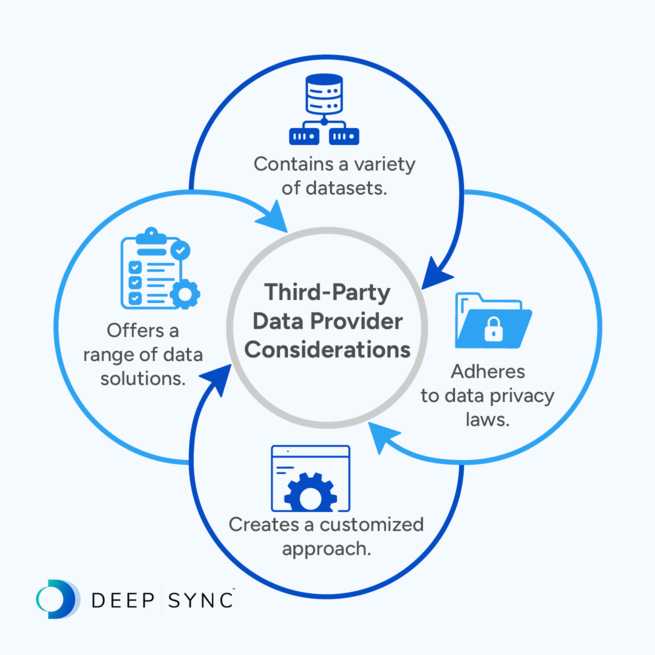Trends in Database Providers: What to Anticipate in the Coming Years
Trends in Database Providers: What to Anticipate in the Coming Years
Blog Article
Secret Attributes to Try To Find When Picking a Database Supplier
Selecting a database company is an essential choice that can significantly impact your company's operations and data management strategy. Among the important functions to think about are scalability alternatives, which make certain that your system can adjust to expanding needs.
Scalability Options
When choosing a database company, comprehending scalability choices is important to making certain that the picked remedy can suit future development. Scalability describes the capability of a database system to expand its ability and efficiency in feedback to raised need. There are 2 main types of scalability: horizontal and vertical.
Upright scalability, or "scaling up," entails improving a single server's sources, such as CPU, RAM, or storage. This method can be economical and simple for smaller applications yet might reach a restriction where additionally upgrades are as well pricey or unwise.
Horizontal scalability, or "scaling out," entails including more web servers to distribute the lots. This technique permits for greater adaptability and can fit significant increases in data volume and individual traffic (database provider). It is particularly useful for cloud-based data source options that can dynamically assign sources based on demand

Safety Measures

When evaluating safety and security steps, consider the implementation of security methods (database provider). Data-at-rest and data-in-transit file encryption are necessary to make sure that sensitive information continues to be secured, even in the event of a safety and security breach. In addition, try to find companies that provide strong verification systems, such as multi-factor authentication (MFA), to better improve access control
Normal safety audits and compliance with sector requirements, such as GDPR or HIPAA, are indicative of a provider's dedication to data defense. Additionally, inquire regarding their event feedback strategy; a robust strategy can minimize the influence of any possible safety and security case.
Performance Metrics
Reviewing performance metrics is crucial for organizations to make certain that their selected data source company fulfills operational needs. Key performance metrics consist of reaction throughput, time, and scalability, which jointly identify the performance of data source operations under differing lots.
Response time is important, as it mirrors how swiftly the database can process inquiries and return outcomes. Organizations should search for metrics that suggest ordinary response times during height and off-peak hours. Throughput, usually measured in deals per second (TPS), supplies understanding right into the database's ability to deal with high quantities of demands without efficiency destruction.
Scalability assesses the database's capacity to grow with the organization's needs. A durable data source service provider ought to demonstrate vertical and horizontal scaling capacities, enabling seamless modifications as demands vary. In addition, comprehending latency, specifically in dispersed systems, can help organizations review the responsiveness of the database across different geographical locations.
Consumer Support
Dependable client assistance is a keystone of efficient data source monitoring, providing organizations with the help required to enhance and deal with issues efficiency. When choosing a data source copyright, reviewing the level of consumer support they use is vital. A robust support group must include multiple channels of interaction, such as phone, email, and live conversation, making sure that users can access aid whenever they need it.
In addition, receptive assistance teams that are available 24/7 considerably enhance the integrity of the database solution. Trigger feedback times and efficient resolution of issues can substantially reduce downtime and increase overall efficiency. It is also helpful to consider the accessibility of committed support employees, who can use customized support based upon a company's particular requirements.

Prices Structure
When considering a data source service provider, the rates structure is a crucial element that can significantly affect a company's budget plan and total technique. A clear and adaptable rates design is crucial for lining up the data source costs with company demands - database provider. Organizations should examine whether the rates is based on usage, per customer, or a flat price, as each model can produce various financial ramifications with time
It is important to examine any kind of additional costs connected with the copyright's services, such as data storage charges, purchase prices, and support charges. Some suppliers might supply tiered pricing, allowing scalability as the organization grows, while others may enforce rigorous restrictions that could become costly as information needs raise.
Moreover, organizations ought to think about the long-lasting value of the database option. While lower preliminary costs can be attractive, they might not make up future upgrades, upkeep charges, or assimilation prices. Conducting an extensive cost-benefit analysis will certainly help determine the most ideal rates framework that stabilizes scalability, support, and performance, ultimately making sure that the chosen database company lines up with the organization's click reference financial and functional objectives.
Verdict
In conclusion, choosing a data source company necessitates cautious factor to consider of various important features. Reviewing performance metrics allows the identification of effective databases, and easily accessible customer assistance enhances the overall user experience.
Choosing a data source company is a critical decision that can dramatically impact your organization's data and operations monitoring approach.When picking a database service provider, understanding scalability alternatives is important to making certain that the chosen solution can suit future growth. When picking a data source company, assessing the level of client support they provide is vital.When thinking about a data source company, the pricing framework is an essential variable that can significantly affect an organization's budget and general strategy. Conducting a detailed cost-benefit evaluation will certainly aid recognize the most suitable rates structure that balances performance, scalability, and support, inevitably ensuring that the selected data source provider lines up with the organization's functional and monetary Home Page objectives.
Report this page